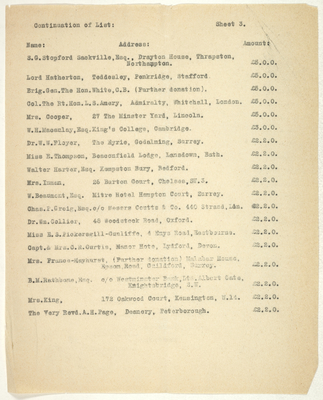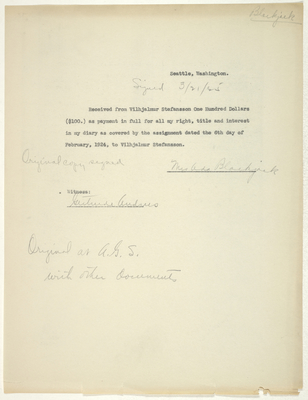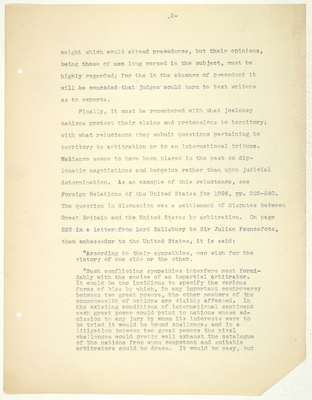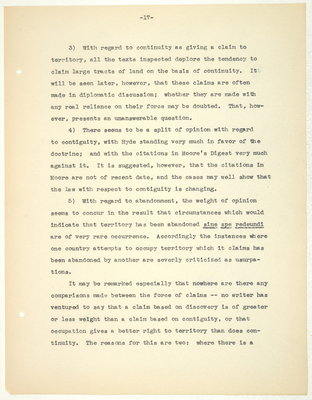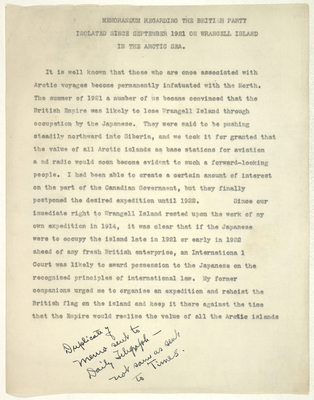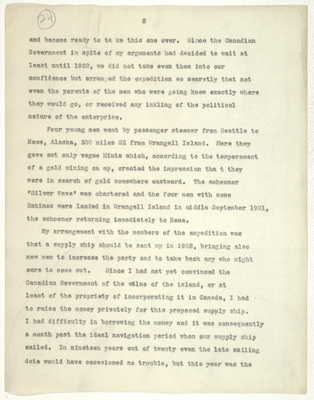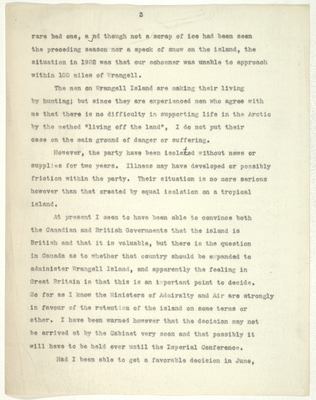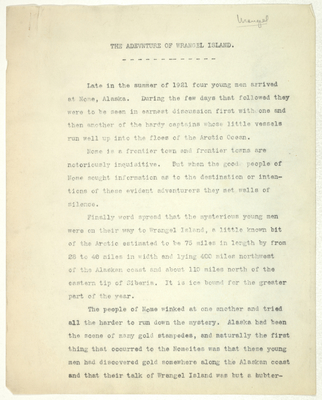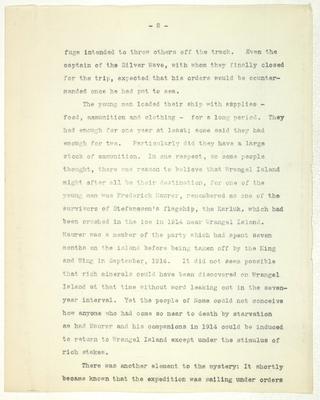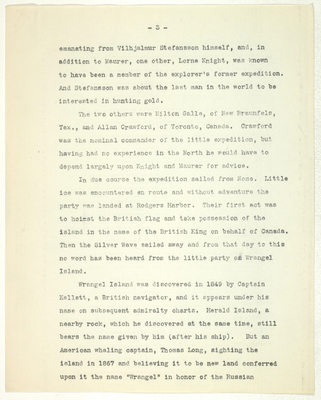Pages needing completion
No pages need transcription from scratch. These pages have been partially transcribed but need to be completed.
stefansson-wrangel-09-36-042
stefansson-wrangel-09-36-042-002
Continuation of List:
Sheet 3.
|Name:| Address:| Amount:|
|S.G.Stopford| Sackville, Esq., Drayton House, Thrapston, Northampton| £5.0.0|
|Lord Hatherton,| Teddesley, Penkridge, Stafford| £5.0.0|
|Brig.Gen.The Hon.White,C.B. (Further donation).| £5.0.0|
Col.She Rt.Hon.L.S.Aaery, Admiralty, Whitehall, London,
Mrs. Cooper, 27 The Minster Yard, Lincoln.
W.H.Maoaulay,Esq.King1s College, Cambridge.
Br.W.W.Floyer, The Eyrie, Godaiming, Surrey.
Miss E.Thompson, Beaeonfield Lodge, Laosdown, Bath.
Walter Harter,Esq. £ ampston Bury, Bedford,
Mrs.Inman, 26 Burton Court, Chelsea, SST. 3*
W.Beaumont.Esq* Mitre Hotel Hampton Court, Surrey.
Chas.P.6reig,Esq.e/o Mosers Coatts & Co. 44C Strand,-dn.
\
Mount k'
d, \
£5.0.0. £5.0.0. £5.0.0. £5.0.0. <&5 ,0,0, >£5.0*0. BE.2.0. BE.2.0. ■S2.2.Q. -U2 • 2.0« £2.2.0. #2.2,0.
Dr. tm.Collier, 46 wood stock Bead, Oxford. £2.2.0.
Miss 1.S.Piokersgill-Cunliffe, * Enys Road,la.ithourne. £2.2.0.
Capt.A *Us.0.H.0urtis, Manor Hote, Lydfo-'d, Boron. .22.2.0.
Mrs. france-Hayn.urst, (Further donation ' ""V a'r iisuso,
K = am Ro e,d, 0 ill dfo rd, * „.rr c y. £2,2.0.
B.M.Rfttaoo?ie,H--.c» o/o Weetnin tor F Lt . -ihert Cate,
Eh i gh t sh ri ft g e, 2. £. £2 .2.0.
Mrs.King, 172 Oakwood Court, Kensington, ..It. £2.2.0.
The Tery Revd.A.H.Page, Deanery,. Peterborough.
£2.2.0
stefansson-wrangel-09-36-055
stefansson-wrangel-09-36-055-001
Signed 3/21/25
Received from Vilhjalmur Stefansson One Hundred Dollars ($100.) as payment in full for all my right, title and interest in my diary as covered by the assignment dated the 6th day of February, 1924, to Vilhjalmur Stefansson.
Original copy signed
Mrs. Ada Blackjack
.Witness: Gurtrude Andrus
Original at A.G.S. with other documents
stefansson-wrangel-09-37
stefansson-wrangel-09-37-003
-2-
weight which would attend precedence, but their opinions, being those of men long versed in the subject, must be highly regarded; for the in the absence of predcedent it will be conceded that judges would turn to text writers as to experts.
Finally, it must be remembered with what jealousy nations protect their claims and pretensions to territory; with what reluctance they submit questions pertaining to territory to arbitration or to an international tribune. Reliance seems to have been placed in the past on diplomatic negotiations and bargains rather than upon judgicial determination. As an example of this reluctance, see Foreign Relations of the United States for 1896, pp. 222-240. The question in discussion was a settlement of disputes between Great Britain and the United States by arbitration. On page 223 in a letter from Lord Salisbury to Sir Julian Pauncefote, then ambassador to the United States, it is said;
"According to their sympathies, men wish for the victory of one side or the other.
"Such conflicting sympathies interfere most formidably with the choice of an impartial arbitrator. It would be too invidious to specify the various forms of bias by which, in any important controversy between two great powers, the other members of the commonwealth of nations are visibly affected. In the existing conditions of international sntiment each great power could point to nations whose admission to any jury by whom its interests were to be tried it would be bound challenge; and in a litigation between two great powers the rival challeges would pretty well exhaust the catalogue of the nations from whom competent and suitable arbitrators could be drawn. it would be easy, but
stefansson-wrangel-09-37-018
-17-
3) With regard to continuity as giving a claim to territory, all the texts inspected deplore the tendency to claim large tracts of land on the basis of continuity. It will be seen later, however, that these claims are often made in diplomatic discussion; whether they are made with any real reliance on their force may be doubted. That, however, presents an unanswerable question.
4) There seems to be a split of opinion with regard to contiguity, with Hyde standing very much in favor of the doctrine; and with the citations in Moore's Digest very much against it. It is suggested, however, that the citations in Moore are not of recent date, and the cases may well show that the law with respect to contiguity is changing.
5) With regard to abandonment, the weight of opinion seems to concur in the result that circumstances which would Indicate that territory has been abandoned sine spe redeundi are of very rare occurrence. Accordingly the instances where one country attempts to occupy territory which it claims has been abandoned by another are severly criticized as usurpations.
It may be remarked especially that nowhere are there any comparisons made between the force of claims -- no writer has ventured to say that a claim based on discovery is of greater or less weight than a claim based on contiguity, or that occupation gives a better right to territory than does continuity. The reasons for this are two: where there is a
stefansson-wrangel-09-38-001
stefansson-wrangel-09-38-001-001
MEMORANDUM REGARDING THE BRITISH PARTY
ISOLATED SINCE SEPTEMBER 1921 ON WRANGELL ISLAND
IN THE ARCTIC SEA.
It is well known that those who are once associated with Arctic voyages become permanently infatuated with the North. The summer of 1921 a number of us became convinced that the British Empire was likely to lose Wrangell Island through occupation by the Japanese. They were said to be pushing steadily northward into Siberia, and we took it for granted that the value of all Arctic islands as base stations for aviation a nd radio would soon become evident to such a forward-looking people. I had been able to create a certain amount of interest on the part of the Canadian Government, but they finally postponed the desired expedition until 1922. Since our immediate right to Wrangell Island rested upon the work of my own expedition in 1914, it was clear that if the Japanese were to occupy the island late in 1921 or early in 1922 ahead of any fresh British enterprise, an Internationa 1 Court was likely to award possession to the Japanese on the recognised principles of international law. My former companions urged me to organise an expedition and rehoist the British flag on the island and keep it there against the time that the Empire would realise the value of all the Arctic islands
stefansson-wrangel-09-38-001-002
2
and become ready to ta ke this one over. Since the Canadian Government in spite of my arguments had decided to wait at least until 1922, we did not take even them into our confidence but arranged the expedition so secretly that not even the partents of the men who were going knew exactly where they would go, or received any inkling of the political nature of the enterprise.
Four young men went by passenger steamer from Seattle to Nome, Alaska, 500 miles SE from Wrangell Island. Here they gave out only vague hints which, according to the temperament of a gold mining ca mp, created the impression tha t they were in search of gold somewhere eastward. The schooner "Silver Wave" was charted and the four men with some Eskimos were landed in Wrangell Island in middle September 1921, the schooner reaturning immediately to Nome.
My arrangement with the members of the expedition was that a supply ship should be sent up in 1922, bringing also new men to increase the party and to take back any who might care to come out. Since I had no yet convinced the Canadian Government of the value of the island, of at least of the propriety of incorporating it in Canada, I had to raise the money privately for this proposed supply ship. I had difficulty in borrowing the money and it was consequently a month past the ideal navigation period when our supply ship sailed. In nineteen years out of twenty even the late sailing date would have occasioned no trouble, but this year was the
stefansson-wrangel-09-38-001-003
3
rare bad one, a nd though no a scrap of ice had been seen the preceding season nor a speck of snow on the isalnd, the situation in 1922 was that our schooner was unable to approach within 100 miles of Wrangell.
The men on Wrangell Island are making their living by hunting; but since they are experienced men who agree with me that there is no difficulty in supporting life in the Arctic by the method "living off the land", I do not put their case on the main ground of danger or suffering.
However, the party have been isolated without news or supplies for two years. Illness may have developed or possibily friction within the party. Their situation is no more serious however than that created by equal isolation on a tropical island.
At present I seem to have been able to convince both the Canadian and British Goverments that the island is British and that it is valuable, but there is the question in Canada as to whether that country should be expanded to administer Wrangell Island, and apparently the feeling in Great Britain is that this is an important point to decide. So far as I know the Ministers of Admiralty and Air are strongly in favour of the retention of the island on some terms or other. I have been warned however that the decision may not be arrived at by the Cabinet very soon and that possibily it will have to be held over until the Imperial Conference.
Had I been able to get a favorable descision in June,
stefansson-wrangel-09-38-004
stefansson-wrangel-09-38-004-001
THE ADEVNTURE OF WRANGEL ISLAND
Late in the summer of 1921 four young men arrived at Nome, A1aska. During the few days that followed they were to be seen in earnest discussion first with one and then another of the hardy captains whose little vessels run well up into the floes of the Arctic Ocean.
Nome is a frontier town and frontier towns are notoriously inquisitive. But when the good people of Nome sought information as to the destination or intentions of these evident adventurers they met walls of silence.
Finally word spread that the mysterious young men were on their way to Wrangel Island, little known bit of the Arctic estimated to be 75 miles in length by from 28 to 40 miles in width and lying 400 miles northwest of the Alaskan coast and about 110 miles north of the eastern tip of Siberia. It is ice bound for the greater part of the year.
The people of Nome winked at one another and tried all the harder to run down the mystery. Alaska had been the scone of many gold stampedes, and naturally the first thing that occurred to the Nomeites was that these young men had discovered gold somewhere along the Alaskan coast and that their talk of Wrangel Island was but a subter-
stefansson-wrangel-09-38-004-002
-2-
fuge intended to throw others off the track. Even the captain of the Silver Wave, with whom they finally closed for the trip, expected that his orders would be countermanded once, he had put to sea.
The young men loaded their ship with supplies - food, ammunition and clothing - for a long period. They had enough for one year at least; some said they had enough for two. Particularly did they have a large stock of ammunition. In one respect, so some people thought, there was reason to believe that Wrangel Island might after all be their destination, for one of the young men was Frederick Maurer, remembered as one of the survivors of Stefansson’s flagship, the Karluk, which had been crushed in the ice in 1914 near Wrangel Island.
Maurer was a member of the party which had spent seven months on the island before being taken off by the King and Wing in September, 1914. It did not seem possible that rich minerals could have been discovered on Wrangel Island at that time without word leaking out in the sevenyear interval. Yet the people of Nome could not conceive how anyone who had come so near to death by starvation as had Maurer and his companions in 1914 could be induced to return to Wrangel Island except under the stimulus of rich stakes.
There was another element to the mystery: It shortly became known that the expedition was sailing under orders
stefansson-wrangel-09-38-004-003
-3-
emanating from Vilhjalmur Stefanason himself, and, In addition to Maurer, one other, Lorne Knight, was known to have been a member of the explorer's former expedition. And Stefansson was about the last man in the world to be interested in hunting gold.
The two others were Milton Galle, of New Braunfels, Tex., and Allan Crawford, of Toronto, Canada. Crawford was the nominal commander of the little expedition, but having had no experience in the North he would have to depend largely upon Knight and Maurer for advice.
In due course the expedition sailed from Nome. Little ice was encountered en route and without adventure the party was landed at Rodgers Harbor. Their first act was to hoist the British flag and take possession of the island in the name of the British King on behalf of Canada. Then the Silver Wave sailed away and from that day to this no word has been heard from the little party on Wrangel Island.
Wrangel Island was discovered in 1849 by Captain Kellett, a British navigator, and it appears under his name on subsequent admiralty charts. Herald Island, a nearby rock, which he discovered at the same time, still bears the name given by him (after his ship). But an American whaling captain, Thomas Long, sighting the island in 1867 and believing it to be new land conferred upon it the name "Wrangel" in honor of the Russian
